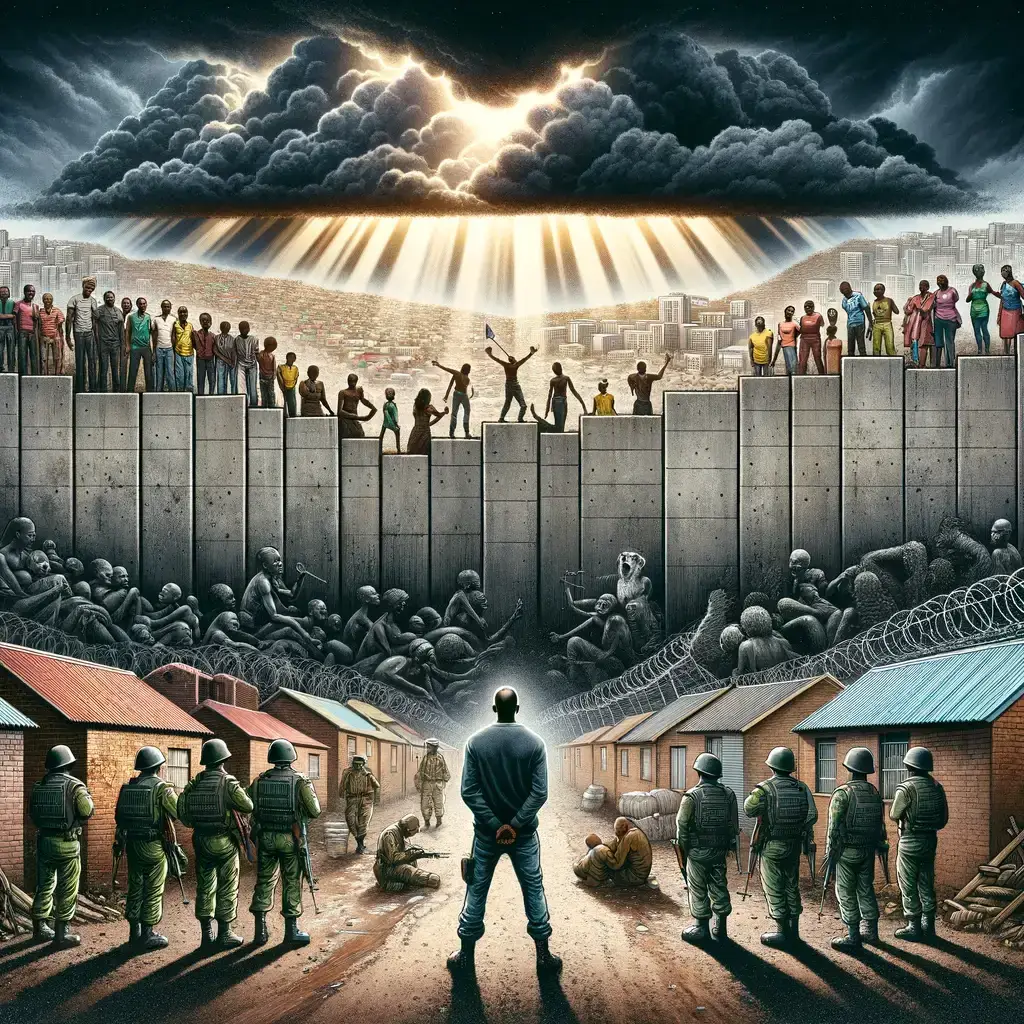Apartheid
Definition of Apartheid
Apartheid was a system of institutionalized racial segregation and discrimination enforced by the government of South Africa from 1948 to 1994. Under this system, non-white South Africans were denied equal rights, forced into separate communities, and restricted in access to education, employment, and public facilities. The system was abolished following years of resistance and international pressure.
The System of Apartheid
Apartheid was a system of racial segregation and discrimination enforced in South Africa from 1948 to 1994. It divided people based on race, with white South Africans holding the most power. Black South Africans and other nonwhite groups were forced to live in separate areas, attend different schools, and use different facilities. This system created deep inequalities and limited opportunities for many people. Apartheid became a symbol of injustice worldwide.
Life Under Apartheid
Nonwhite South Africans faced constant challenges in their daily lives. The government required them to carry passbooks to travel in specific areas and restricted where they could live and work. For example, Black South Africans were forced into overcrowded and impoverished neighborhoods known as “townships.” Additionally, laws controlled nearly every aspect of their lives, leaving little room for freedom. Despite these hardships, many resisted oppression and worked to preserve their culture, showing resilience and determination.
Resistance Against Apartheid
Many South Africans fought back against apartheid through protests, strikes, and activism. Leaders like Nelson Mandela and organizations like the African National Congress (ANC) played a major role in the struggle. Peaceful marches, boycotts, and speeches brought attention to the injustices of apartheid. Though the government often responded with violence and arrests, resistance continued to grow. These efforts inspired people around the world to join the fight for equality.
Nelson Mandela and His Legacy
Nelson Mandela became a global symbol of the fight against apartheid. Imprisoned for 27 years for his activism, he never gave up on the dream of equality. After his release in 1990, Mandela worked to end apartheid peacefully. In 1994, he became South Africa’s first Black president, leading the country toward reconciliation. His leadership and forgiveness helped South Africa heal and inspired people around the world.
The Role of International Pressure
Countries around the world condemned apartheid and supported the fight for equality. Many imposed sanctions, cutting economic and political ties with South Africa. Protest movements in the U.S., Europe, and other regions called for companies to stop doing business in the country. This international pressure hurt South Africa’s economy and forced its leaders to reconsider apartheid policies. Global solidarity played a key role in ending apartheid.
Laws That Divided Society
Under apartheid, laws ensured that racial segregation was strictly enforced. The Population Registration Act categorized people by race, while the Group Areas Act forced people to live in separate neighborhoods. Other laws banned interracial marriage and limited education for nonwhite children. These laws created a society where white South Africans had privileges, while others faced oppression. Understanding these laws shows how apartheid was maintained for so long.
The End of Apartheid
Apartheid officially ended in 1994 after decades of resistance and negotiation. Nelson Mandela and President F.W. de Klerk worked together to create a new constitution that guaranteed equality for all South Africans. The country held its first democratic elections, allowing everyone to vote regardless of race. The end of apartheid marked the start of a new era of freedom and hope, but challenges remained in addressing the effects of decades of injustice.
The Truth and Reconciliation Commission
After apartheid ended, South Africa created the Truth and Reconciliation Commission (TRC) to help heal the nation. The TRC allowed victims to share their stories and gave perpetrators the chance to confess their actions in exchange for amnesty. Led by Archbishop Desmond Tutu, the commission focused on forgiveness and rebuilding trust. While not perfect, it helped the country address its painful past and move toward unity.
Apartheid’s Lasting Impact
Even though apartheid ended, its effects are still felt in South Africa today. Economic inequality remains a challenge, with many nonwhite communities still facing poverty and limited opportunities. Racial divisions linger, but efforts to build a more inclusive society continue. Schools, businesses, and leaders work to address these challenges and create a brighter future. The legacy of apartheid reminds us of the importance of fighting for justice.
Lessons From Apartheid
Apartheid is a powerful example of how unjust systems can harm entire societies. It shows the importance of standing up for equality and resisting discrimination. The global movement against apartheid proves that people working together can create change. Learning about this period helps us understand the dangers of prejudice and the strength of those who fight for freedom. It teaches us to value human rights and inclusion for all.
